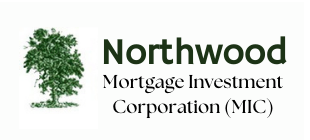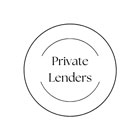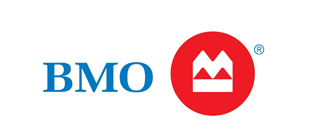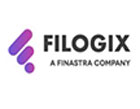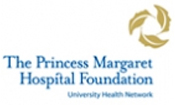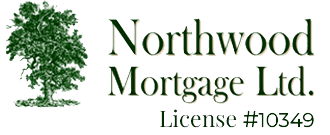Can any homeowner over 60 get a reverse mortgage?
No. People who still owe a lot of money on their existing mortgage may not have sufficient equity to pay off their current mortgage with a reverse mortgage. In such a situation, a reverse mortgage may not be a viable solution for your cash needs. What should I do if I’m planning to sell my home?
If you want to sell your home while having a reverse mortgage, perhaps to downsize or move into a retirement home, you should keep in mind that your equity will likely be lower due to the interest and fees added to the loan. That said, there is a chance that the value of your home may have risen over time, allowing you to gain back some equity. Once you sell your home, you will have to repay the loan in full, leaving you with an amount equivalent to the current equity of your home. What is Reverse Mortgage in Canada?
A reverse mortgage is a financial tool that provides Canadian seniors 55 and up with cash flow from the equity in their homes. In general, no payments are expected to be made on a reverse mortgage until the home is sold. Is it possible to obtain a Reverse Mortgage on a condominium or apartment?
Yes, a Reverse Mortgage can be obtained on various types of homes, including condos, apartments, and semi-detached homes. What are the eligibility criteria for a reverse mortgage?
To be eligible for a reverse mortgage, you need to meet certain requirements. These include being a homeowner, being at least 62 years old, and having sufficient equity in your home. Medical requirements are not necessary.
Lenders are obligated to assess the financial situation of every reverse mortgage applicant. This assessment ensures that the borrower has the financial ability to meet mandatory obligations such as property taxes and homeowner's insurance, as specified in the Loan Agreement.
If a lender determines that a borrower may struggle with future property tax and insurance payments, they have the authority to allocate a portion of the loan funds to cover these charges.
How does the interest work on a reverse mortgage?
In a reverse mortgage, interest is applied solely to the funds you receive. You can choose between fixed and variable interest rates. Rather than paying interest from your loan proceeds, it accumulates over the duration of the loan until repayment takes place.
Reverse Mortgages in Toronto

A reverse mortgage lets you borrow money by using your house as collateral. This option gives you access to about 55% of the current appraised value of your home in Toronto if you’re ever in need of cash.
In return, interest and fees are added to your loan balance each month, causing your mortgage loan balance to increase and home equity to decrease.
Unlike a traditional mortgage, you only pay back the reverse mortgage if you move from your home – because of death or selling the home. Although you’re not required to make regular payments, you must continue paying homeowner’s insurance and property taxes, in addition to keeping the property in good condition.
What is a Reverse Mortgage and How Does it Work in Ontario?
If you owe money on your home but are considering a reverse mortgage in Toronto , qualifying for it means trading your current mortgage loan for a larger loan. Some of the money borrowed via the reverse mortgage will be used to pay off your current mortgage. This option can free up cash flow. This option can still free up the money you were previously using to make monthly mortgage payments so you can spend it on other things.
Homeowners in Toronto can access up to 55% of the current appraised value of their home based on their age and that of their spouse, interest rate of their loan, and on the location and type of home, which affects it’s value. Generally, you will enjoy a higher borrowing limit (principal limit) if:
- You‘re over 55
- Have lower interest rates
- Have a higher valued home
There are three main options for receiving your reverse mortgage funds:
1. Lump sum with fixed interest rate
The borrower can withdraw all the available amount at once.
2. Line of credit with an adjustable interest rate
Allows for limited withdrawals during your first year, with the remaining funds being accessible in the second year. It costs less than other options due to only paying interest and fees on the money you plan on using. This allows you to continue to grow any unused credit.
3. Monthly payout with adjustable interest rate
Limits your withdrawals during the first year, with the remaining funds being accessible in the second year. You receive a monthly payout that supplements your income. You can choose between:
- Term – fixed monthly payouts for a given number of years
- Tenure – continuous fixed monthly payouts provided they don’t exceed a maximum mortgage amount indicated in your loan documents
You will incur interest and fees only on the amount you’ve drawn so far, which lowers the cost. The growth in your unused credit is factored into your monthly payout amount. Keep in mind that this option can be combined with a line of credit. Be aware of these rates before going for a reverse mortgage.
Reverse Mortgage – Pros
Pros
- You can use the funds for any expense
- Older borrowers have a higher borrowing limit
- Funds are not taxed as income.
- Funds can be received in a lump sum or over time
- No regular payments are required.
- The full amount only becomes due when the home is sold, or both home owners are deceased.
- Clients have the option to repay the principal and interest in full at any time. Upon repayment, an interest rate differential may apply (maximum of three months’ interest).
Cons Penalties
- Reverse mortgages are expensive, since you owe not only the amount borrowed, but interest and fees as well
- The amount you owe increases over time, and it gradually reduces your home equity
- Penalties
Why Trust Northwood Mortgage For Your Reverse Mortgage Needs?
A reverse mortgage may be the right solution for you, but it’s important that you learn about the reverse mortgage basics and browse the current interest rates for reverse mortgages in Toronto, Ontario before making the decision.
At Northwood Mortgage, we have a qualified team of agents and brokers specializing in reverse mortgages. Our agents and brokers will first understand your needs and assess your current situation before searching for the best reverse mortgage rates that will maximize your funds and help you plan for your future and retirement.
I Would Like to be Contacted About Reverse Mortgage
Ownership protection
With a CHIP reverse mortgage, title remains in the homeowner’s name and they will never be asked to move or sell to repay their Home Income Plan. The homeowner is responsible for up-to-date payment of property taxes, fire insurance and condominium/maintenance fees, and maintenance of the property.
Estate protection
In more than 20 years of our experience, over 99% of homeowners have equity remaining upon repayment.
The amount to be repaid is guaranteed not to exceed the fair market value of the home at the time it is sold, protecting the homeowner or the estate.
CHIP’s conservative lending practices combined with typical home appreciation result in clients maintaining, on average, at least 50% of their home equity at the time of repayment. In this illustration, home equity appreciates by 5.6% annually (20-year national house appreciation average Source: CREA 2007) with a CHIP Home Income Plan initial interest rate of 8% with long-term discounts applied. These assumptions are not indicative of future market performance or interest rates. Actual results may vary.
Related Links

Older, mortgage-free homeowners looking for ways to come up with extra cash might want to consider the benefits of a reverse mortgage.
You’ve worked hard, your house is now yours free and clear and you have some dreams that you’d like to start to fulfill. The professionals at Northwood Mortgage will sit with you to chat about how you can get some tax-free money out of your home for whatever you desire. You keep your home!
You should know that to qualify for a reverse mortgage in Canada, you have to be 60 years of age or older. A conventional mortgage or loan requires that you make regular payments, but a reverse mortgage doesn’t. With a reverse mortgage, interest accumulates and equity decreases and if you ever do decide to sell your home, the loan and anything accrued gets paid back then.
Just the way you like it
Eventually you’ll owe more than you borrowed, since interest is being added to your balance. But a reverse mortgage allows you to choose how you receive your money. Do you want it all at once or perhaps spread over time? It’s up to you. Also, if you’d like to pay back the interest and principal entirely, pay the interest month-to-month or on an annual basis, that’s your decision, too.
Considering the positives and the not-so-positives of a reverse mortgage will help you make an informed choice about whether this is the right type of loan for you.
The pros
- You can get the money in one lump sum, gradually or a combination of those two choices. You make that decision;
- You keep your home;
- The money borrowed is tax free;
- No regular payments;
- No medical, income or credit qualifications;
- If interest rates rise or housing values drop, you or your heirs won’t have to worry about any shortfall;
- Extra cash can take the pressure off other possible mounting expenses;
- The amount you owe can never exceed the property value.
The cons
- The loans have higher interest rates;
- Equity decreases as interest accumulates;
- Upon your death (and the death of your spouse) your estate has a certain time limit to repay the loan in full. The problem with this is that it sometimes takes longer to settle an estate than the time your heirs have to pay the loan back;
- Of course, a reverse mortgage will cut back on the amount you intended to leave your beneficiaries;
- Seniors Money Canada and Canadian Home Income Plan are the only two companies offering reverse mortgages in Canada;
- There are other costs associated with the reverse mortgage, such as a home appraisal, application or closing fees, costs for legal advice and a penalty for selling or moving within three years of getting the mortgage.
A Northwood Mortgage professional will be happy to sit down with you to explain all the details of a reverse mortgage and suggest a plan that’s best for you. Call them today.
Related Links
Ownership protection
With a CHIP reverse mortgage, title remains in the homeowner’s name and they will never be asked to move or sell to repay their Home Income Plan. The homeowner is responsible for up-to-date payment of property taxes, fire insurance and condominium/maintenance fees, and maintenance of the property.
Estate protection
In more than 20 years of our experience, over 99% of homeowners have equity remaining upon repayment.
The amount to be repaid is guaranteed not to exceed the fair market value of the home at the time it is sold, protecting the homeowner or the estate.
CHIP’s conservative lending practices combined with typical home appreciation result in clients maintaining, on average, at least 50% of their home equity at the time of repayment. In this illustration, home equity appreciates by 5.6% annually (20-year national house appreciation average Source: CREA 2007) with a CHIP Home Income Plan initial interest rate of 8% with long-term discounts applied. These assumptions are not indicative of future market performance or interest rates. Actual results may vary.
Related Links
- Interest Rates and Set-up Costs
- How A Reverse Mortgage Might Work

Ask Us AboutOur Northwood

Fixed Rate and Variable Rate
options available!
Do you want to be Mortgage FREE Faster?







